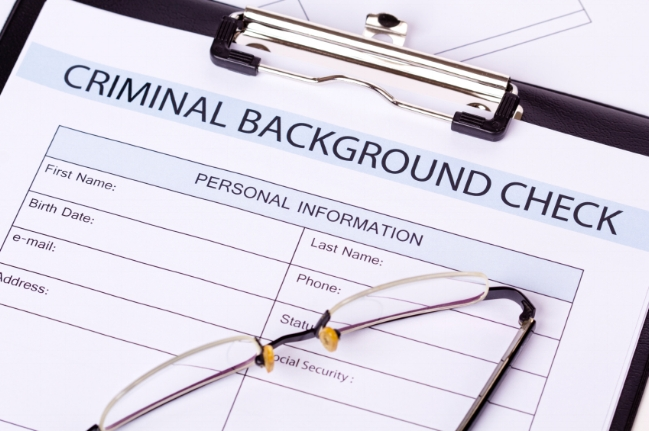The impact of assault and battery charges on employment and background checks can significantly influence your job prospects. This article will explain how these charges can affect your employment opportunities, what information employers might find, and what steps you can take to mitigate these effects.
Key Takeaways
- Assault and battery charges can have significant, far-reaching impacts on employment opportunities, often requiring disclosure on job applications and influencing background checks.
- The severity and classification of the charges, whether misdemeanor or felony, determine the extent of legal and employment-related consequences, including potential job loss and future career limitations.
- Mitigating these impacts involves strategies such as seeking expungement, demonstrating rehabilitation and remorse, and obtaining skilled legal representation to navigate the complexities of the legal system and improve employment prospects.
The Impact of Assault and Battery Charges on Employment and Background Checks: What You Should Know

Navigating the aftermath of assault and battery charges is a formidable challenge, especially when it comes to employment and background checks. Such charges can cast a long shadow, affecting not just current job status but also future career opportunities and financial stability.
Introduction
Assault and battery charges can set off a domino effect, leading to immediate legal issues and potentially derailing long-term career plans. For anyone embroiled in such legal troubles, comprehending these potential employment consequences is of paramount importance.
Understanding Assault and Battery Charges

From their legal definitions to the potential industry-specific job market challenges they present, understanding the seriousness of assault and battery charges is vital. Taking the step to secure the right support is invaluable in regaining one’s employment prospects.
Definitions of Assault and Battery
While ‘assault’ may conjure images of physical altercations, legally, it signifies an act that intentionally instills fear of imminent harm, with or without physical contact. ‘Battery’, on the other hand, is defined by the actual infliction of harm or offensive contact.
Misdemeanor vs. Felony Classifications
The distinction between misdemeanors and felonies in assault and battery charges hinges on factors such as the severity of the act, the use of weapons, and the injuries incurred. Misdemeanors are less severe but can escalate to felonies based on these variables. A misdemeanor conviction, while not as serious as a felony, still carries consequences, especially when dealing with a misdemeanor offense.
Legal Consequences of Convictions
Convictions for assault and battery, including aggravated assault, carry a spectrum of penalties, from fines and probation to significant jail time. These criminal charges can lead to a criminal conviction, leaving an indelible mark on one’s criminal record and influencing future prospects in countless ways.
How Assault and Battery Charges Affect Employment Opportunities

Employment impacts of assault and battery charges can vary, from job securing hurdles to termination risks. Industries with a focus on trust and integrity may be particularly unforgiving, making it imperative to understand these challenges and how to navigate them.
Disclosure Requirements on Job Applications
Job applications often require disclosure of one’s criminal history, including assault and battery charges, as well as felony convictions. This transparency can be a double-edged sword for those seeking employment, potentially jeopardizing employment opportunities or, conversely, demonstrating honesty to potential employers.
Employer Policies and Termination Risks
Company policies related to assault and battery convictions can vary widely, with some mandating termination or disciplinary actions. These policies are typically geared towards maintaining a safe work environment and mitigating liability.
Security Clearances and Federal Jobs
For those aspiring to federal employment, assault and battery charges can be particularly obstructive. The stringent requirements for security clearances often preclude individuals with such convictions, closing the door to a range of job opportunities.
The Role of Background Checks in Hiring Decisions

Background checks are a standard component of the hiring process, with employers relying on them to gauge a candidate’s suitability for the role. Knowing what these checks involve and the existing legal protections for fair hiring practices is essential.
Information Shown on Background Checks
Background checks paint a comprehensive picture of an applicant, including criminal records, work history, and even credit scores. For both employers and job seekers navigating the hiring process, it’s critical to comprehend the scope of this information, including the importance of criminal background checks.
Employers’ Use of Background Check Information
Private employers scrutinize background checks to determine if past legal issues could affect a candidate’s performance. This scrutiny is balanced with the necessity to provide fair opportunities, allowing candidates the chance to explain or dispute their records.
Fair Hiring Practices and Legal Protections
Legal protections, such as the “Ban the Box” law, seek to level the playing field, delaying criminal record inquiries until later in the hiring process. This approach allows candidates to be evaluated on their qualifications rather than their past.
Mitigating the Impact of Assault and Battery Charges on Employment

Mitigating the impact of assault and battery charges on employment is achievable. Strategies such as demonstrating remorse, engaging in community service, and obtaining character references can all play a role in enhancing an individual’s employment prospects.
Expungement and Sealing of Records
Expungement offers a legal avenue to remove convictions from the public record, potentially clearing the path to better employment opportunities. The first step towards achieving a cleaner slate is to understand the expungement process and criteria.
Demonstrating Rehabilitation and Remorse
Demonstrating rehabilitation and remorse can be a powerful tool in job interviews and personal interactions. Showing that one has learned from past mistakes and taken steps to improve can positively influence potential employers.
Legal Representation and Guidance
When facing assault and battery charges, the importance of legal representation is paramount. An experienced attorney can provide guidance, advocate for rights, and devise a defense strategy that may improve employment prospects.
Long-Term Consequences on Career and Personal Life
The effects of assault and battery convictions on one’s career and personal life can be long-lasting. Some of the consequences include:
- Limiting career advancement
- Affecting personal relationships
- Difficulty finding employment
- Loss of professional licenses or certifications
- Damage to reputation and social standing
These consequences extend well beyond the legal process and the courtroom.
Career Advancement and Professional Growth
Often restricting access to certain jobs and professional licenses, a criminal record can significantly hinder career advancement and professional growth.
The path to upward mobility can be fraught with barriers for those with assault and battery convictions.
Financial Stability and Earnings Potential
A criminal record can have profound financial repercussions, impacting earnings potential and overall financial stability. Finding stable, well-paying employment becomes more challenging, leading to a cumulative effect on one’s economic wellbeing over time.
Social Stigma and Personal Relationships
Social stigma associated with a criminal record can corrode personal relationships and lead to isolation.
For maintaining mental health and personal connections, addressing the emotional and social impacts of this stigma is vital.
About Levitt Legal and Attorney Darren Levitt
Levitt Legal, led by the experienced criminal defense attorney Darren Levitt, specializes in defending individuals against assault and battery charges. The firm is well-versed in navigating the complexities of the legal system to protect the rights and futures of its clients.
Levitt Legal’s Commitment to Clients
Levitt Legal is committed to providing thorough and aggressive criminal defense services, ensuring that every client benefits from Darren Levitt’s experience and dedication to protecting their rights.
Darren Levitt’s Expertise and Experience
Darren Levitt’s expertise and experience in criminal defense are extensive, offering clients the advantage of his knowledge and skills in both state and federal courts.
Areas Served by Levitt Legal
Levitt Legal extends its services to a broad area, serving clients in Salt Lake County and surrounding communities in Utah, ensuring that those in need have access to quality legal representation.
Summary
In summation, the impact of assault and battery charges on employment and background checks is profound and far-reaching. Understanding the nuances of these charges, the importance of background checks, and the potential for rehabilitation and expungement are all critical steps toward mitigating their effects and moving forward with one’s career and life.
Frequently Asked Questions
Can employers find out about assault and battery charges if I’ve never been convicted?
Yes, employers can find out about assault and battery charges even if you’ve never been convicted, as arrests without convictions can appear on background checks. However, the influence on hiring decisions varies depending on company policies and the nature of the job.
Are there any jobs I cannot get if I have an assault charge on my record?
Yes, individuals with assault charges may be restricted from certain jobs, especially those involving security clearance or work with vulnerable populations.
How can I improve my employment prospects with an assault or battery charge on my record?
To improve your employment prospects with an assault or battery charge on your record, focus on demonstrating rehabilitation, engaging in community service, obtaining character references, and exploring expungement opportunities. These steps can help mitigate the impact of the charge on your record.
What is the “Ban the Box” law, and how does it help me as an applicant with a criminal record?
The “Ban the Box” law removes criminal history questions from job applications, allowing candidates to be judged first on their qualifications rather than their criminal record. This increases the chances for applicants with a criminal record to be considered for employment opportunities.
Can a criminal defense attorney help me with employment-related issues stemming from my charges?
Yes, a criminal defense attorney can assist you in addressing employment-related issues stemming from your charges, including providing guidance on presenting past charges during job interviews and advocating for improved employment prospects.
